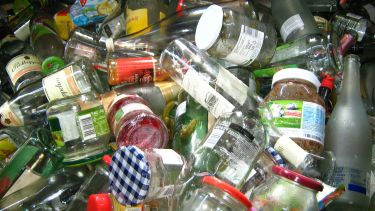Professor Lenny Koh, Director of CEES, along with colleagues Federica Cucciella, Idiano D’Adomo and Paolo Rosa from the University of L’Aquila and Politecnico di Milano have recently published a paper entitled ‘Recycling of WEEEs: an economic assessment of present and future e-waste streams’.
Waste electrical and electronic equipment is currently considered to be one of the fastest growing waste streams in the world, with an estimated growth rate between three and five per cent each year.
Professor Koh, Director of Advanced Resource Efficiency Centre (AREC) and a world leading expert on low carbon supply chains, said: “We have been working on the collaborative research for several years with the University of L’Aquila and Politecnico di Milano. This builds from our prior research on turning waste into resource, resource efficiency and circular economy.
“In particular, this research has strong relevance to addressing global issues of materials availability and security, reducing reliance on unused non-renewable materials, especially precious, critical and rare earth materials in manufacturing for sustainability and for consideration for substitution.”
The paper presents a comprehensive framework supporting the decision-making process of multiple electronic recycling centres. The assessment defined the potential revenues coming from the recovery of valuable materials, such as gold and platinum, in 14 electronic items including notebooks, monitors, smartphones, hard drives and tablets using current and future disposed quantities in Europe.
It found that recycling electronic waste was equal to 2.15 billion euros in overall potential revenue to the European market in 2014 and could rise to 3.67 billion euros by 2020. As well as providing a significant source of revenue, more effective recovery of materials could benefit the environment by reducing manufacturers’ reliance on unprocessed resources.
Professor Koh added: “The recycling of e-waste could allow the diminishing use of virgin resources in manufacturing and, consequently, it could contribute in reducing environmental pollution.
“Given that EU has tried over the last two decades to develop a circular economy based on the exploitation of resources recovered by wastes, this research is key evidence to influence both industry and government on the financial and economic value of materials recovery of WEEE.”
With the development of new electronic items and waste set to increase, the research highlights the need for manufacturers and recycling centres to work more closely together in order to recover more material from disposed equipment. It also recommends needed the development of more flexible recycling plants able to intercept different types of end of life products.
Following publication earlier this month, the research has been recognised by academic publisher Elsevier with the prestigious Atlas Award.
The award recognises scientific research that has an impact on people around the world and is selected by an advisory board based on suggestions from the publishers of Elsevier's 1,800 journals each month.
Professor Gill Valentine, Pro-Vice-Chancellor for the Faculty of Social Sciences, said: “I am delighted to hear that Professor Koh and her colleagues have been recognised with the Elsevier Atlas Award. This insightful work demonstrates the significant impact research here at the University can have on our world and the environment.”
An award ceremony for the presentation of the Elsevier Atlas Award will be held at the Management School on 29 September 2015.

